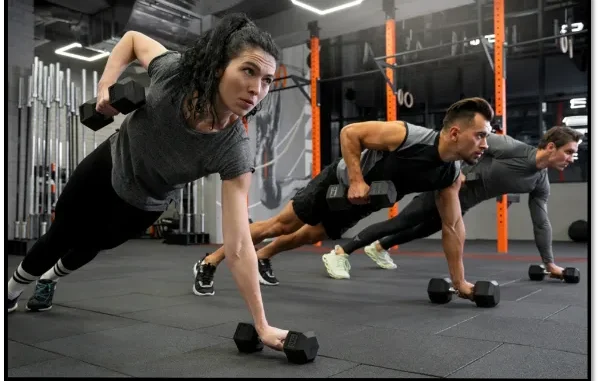

Are you consistently showing up for the workout and lifting heavy weights but still not getting the expected transformation? The problem might not be your workout. Building muscles is not confined to the gym only. It is a complete process that involves training, nutrition, rest, and consistency. If you neglect any of these, it might affect your workouts.
Many of you may underestimate the impact of recovery nutrition. Supplements like whey protein can play a vital role in helping your muscles rebuild and grow stronger after intense workouts. Progress slows if your body doesn’t get the right fuel at the right time. If you can’t figure out what is holding back your progress, this blog can be a wonderful read for you.
Reasons Behind Your Slow Muscle Growth
If you want to maximize your muscle recovery and growth process, you should pay attention to the following reasons:
- You Don’t Eat Enough
To build muscle, your body needs a caloric surplus. That means consuming more calories than you burn. But it’s not just about eating more, you need quality nutrients, especially protein and complex carbohydrates.
If you eat clean but still don’t gain, you probably don’t eat enough. This is especially true for people with fast metabolisms or small appetites. In such cases, a mass gainer supplement can be helpful for you. It provides a high-calorie blend of carbs, protein, and fats – ideal for those who struggle to eat large meals or are always on the go.
- Workout Repetition
Not all workouts have a similar effect. Doing endless reps without progressively increasing the weight won’t stimulate new muscle growth. Likewise, focusing only on cardio or high-rep circuits may be great for fat loss but not for building size and strength.
For real growth, focus on progressive overload – gradually lifting heavier weights over time. Keep compound exercises like squats, deadlifts, bench presses, and rows in your list, which engage multiple muscle groups and drive efficient growth.
- Recovery Isn’t a Priority
Muscles don’t grow while you work out; they grow while you recover. If you sleep just 4-5 hours a night, overtrain, or skip rest days, your body doesn’t get time to repair muscle tissue. Aim for at least 7-9 hours of sleep per night and plan proper rest days into your routine.
And yes, post-workout nutrition matters too. Consuming a fast-digesting source of protein within 30-60 minutes after training can significantly improve your recovery and support muscle synthesis.
- You Don’t Track Progress
What you don’t track, you can’t improve. Many people assume they eat enough or lift more each week – but without tracking, it’s guesswork. You can use an app or simple journal to log your meals, workouts, sleep, and even how you feel. Over time, these patterns will help you identify what’s working and what’s not.
Summing Up
If you are not observing gains even after training harder, then train smarter. Eat more of the right foods, optimise your recovery, structure your workouts properly, and be consistent. Strategic supplementation with the right products like protein, gainers, or creatine can support your goals when used correctly.
When you adapt to everything correctly and stick to your routine each and every day, your muscle growth progresses eventually.






Leave a Reply